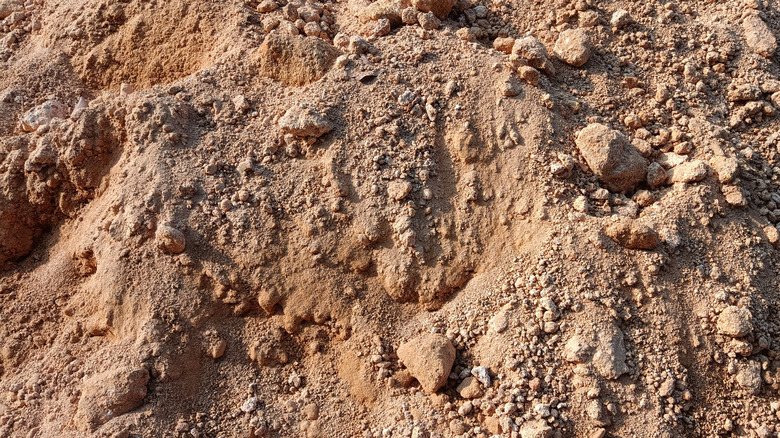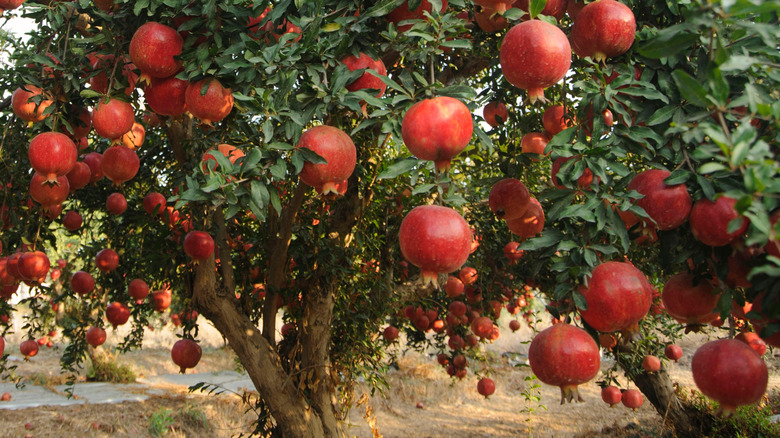The Hardy Fruit Tree That Can Happily Grow In Rocky Soil
Gardening in loamy soils is often regarded as the best growing condition for plants. However, there are many other soil types gardeners have to contend with, from clay to silt. While they all have their pros and cons, one type of soil that has garnered a bad reputation is rocky soil. You may be familiar with this terrain if the ground beneath your soil is littered with massive rocks. Dealing with rocks can be a challenge since their presence blocks roots' ability to spread out and receive the nutrients they need. Still, that doesn't mean it's impossible to maintain thriving plants in this soil. What's important is picking the right type of plant for your environment. If you're dealing with rocky soil, it may be time to try your luck with pomegranate trees (Punica granatum).
Pomegranate trees are coveted for their antioxidant-rich fruits and resilient nature. Native to hot and dry climates like Iran and northern India, the existence of the tree stretches back to ancient civilizations dotted along the Mediterranean. The fruit even played a vital role in both Greek mythology and Egyptian rituals. With all this history under its belt, the pomegranate tree would be a rich addition to your landscaping plans. There are a few varieties, with Punica granatum 'Wonderful' being the most commonly grown cultivar. Hardy in zones 8 through 11, pomegranate trees can reach 12 to 20 feet high. Its adaptability makes it well-suited for a wide range of soils. They are also drought-tolerant, which means they can better withstand the lack of reliable moisture that comes from having rocky soil.
How to care for your pomegranate tree
Growing and taking care of a pomegranate tree is pretty simple, as long as you provide the best conditions you can. Generally, pomegranate trees thrive in full sun and well-draining soil, especially if you want to yield a generous amount of fruit. But don't fret if you live in locations like the Southwest and New England—these adaptable plants will quickly adjust to the rockier terrain that can be prevalent in those areas.
Because rocks compact the soil, it can be difficult for rocky terrain to retain moisture. This makes the soil prone to dryness, which is exacerbated by its tendency to trap heat. Thankfully, pomegranate's high tolerance for drought and heat is one reason why this plant is an ideal match. With that in mind, you should still irrigate the soil to ensure that it receives enough water. Otherwise, the low moisture will impact the health of the fruits as well as the quantity of your harvest.
Another facet to consider with rocky soils is the lack of organic matter. Incorporating manure, plant trimmings, and mulch can act as amendments that will help improve your poor soil quality. Experts advise adding a six-inch layer of organic compost to your selected area and tilling it into the ground. If you encounter any big rocks during the tilling process, feel free to remove them from your area. Not only will organic matter boost nutrients, it will also help with drainage, moisture retention, and soil structure. This boost will have a beneficial effect on your pomegranate tree, making it easier for its roots to absorb the nutrients it needs to flourish.

